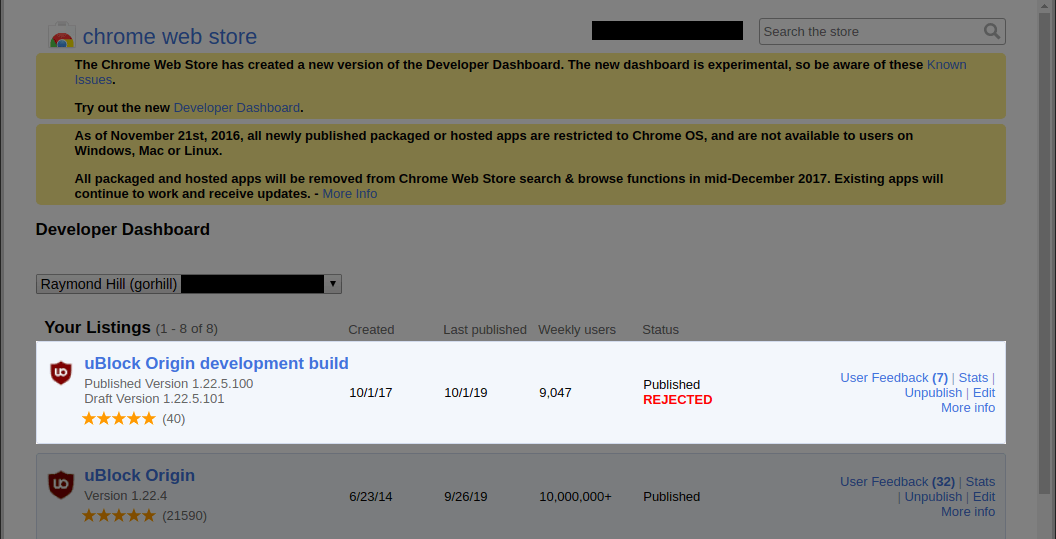Google Chrome has begun phasing out support for the popular ad-blocking extension, uBlock Origin. This change is part of Google's transition from the older "Manifest V2" to the new "Manifest V3" extension platform. The shift aims to enhance security but limits the capabilities of content-blocking extensions like uBlock Origin, which has been widely used for blocking ads and enhancing user privacy.
Key Points:
- Manifest V3 Transition: Google's move to Manifest V3 is designed to improve security and performance. However, it restricts the functionality of extensions that rely on blocking web content, which directly impacts uBlock Origin and similar tools , .
- Impact on Users: Users of uBlock Origin may notice that the extension is automatically disabled in their Chrome browsers. This has led to concerns among users who rely on the extension for a cleaner browsing experience .
- Developer's Response: Raymond Hill, the developer of uBlock Origin, has acknowledged the changes and is exploring ways to adapt to the new specifications. However, the full functionality of the extension as it existed under Manifest V2 may not be possible under the new rules .
Visual Insights:
- An image shows a shield with the uBlock Origin logo beside the Chrome logo, symbolizing the integration and now the phaseout of the extension in Chrome .
- Another graphic illustrates a red stop sign, indicating the disabling of ad-blocking extensions like uBlock Origin in Google Chrome .
Alternatives:
Users looking for alternatives might consider switching to browsers like Firefox or Brave, which continue to support more robust ad-blocking capabilities. These browsers offer similar extensions that are not affected by Chrome's Manifest V3 changes .
In summary, while Google's transition to Manifest V3 aims to bolster security, it significantly impacts the functionality of uBlock Origin, prompting users to explore alternative solutions for ad-blocking.



